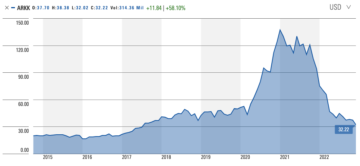Renowned crypto lawyer John Deaton, who represents over 75,000 XRP holders, said on July 23 that an SEC appeal will not necessarily change the outcome of the Ripple ruling.
In the ever-changing landscape of crypto regulations, the recent Ripple ruling has sparked hope and uncertainty for the crypto industry. Earlier this week, the U.S. Securities and Exchange Commission (SEC) expressed its intentions to appeal part of the decision, which the agency said was “wrongly decided.”
The SEC takes offense with the part of the Ripple ruling concerning the retail sale of XRP on crypto exchanges. The judge ruled that the retail sale of XRP did not constitute securities sales but the SEC wants to appeal the ruling potentially.
However, Deaton noted in a Tweet that even if the SEC filed an appeal, it would take around two years before a decision is issued by the court. In the meantime, the Ripple ruling delivered by Judge Analisa Torres will continue to be the governing law, at least within the 2nd Circuit.
Appeal does not guarantee a win for the SEC, says Deaton
Deaton claimed that Ripple would potentially win in court a second time if the SEC moved forward with its appeal. As per Deaton’s analysis, even if the 2nd Circuit potentially disagreed with Judge Torres’ application of the third factor of the Howey Test, it does not guarantee a victory for the SEC.
The four factors of the Howey Test include (1) an investment of money, (2) in a common enterprise, (3) the expectation of profit (4) derived from the efforts of others. Any asset that checks all four boxes is classified as a security and governed by federal securities laws.
Judge Torres ruled that the retail sale of XRP did not meet the third factor of the Howey test because retail investors did not have a reasonable expectation of profit tied to Ripple’s success.
If the 2nd Circuit found Judge Torres’ application of the third prong of the Howey Test to be “wrong,” Judge Torres would likely assess the remaining two factors of the Howey Test, Deaton said. In that case, Judge Torres could “rule the EXACT SAME WAY” as the first time, after finding that the SEC did not satisfy the common enterprise factor, he added.
It is important to clarify that the Torres Decision is not binding beyond the Southern District of New York (SDNY). While a fellow District Judge within the SDNY could potentially disagree with Judge Torres, Deaton argues that such dissent would be less likely within the 2nd Circuit, especially considering her citation of Judge Castel’s ruling from the Telegram case.
Deaton further pointed to the Coinbase transcript as evidence that events seem to align with Judge Torres’ perspective. He suggests that there is already a consensus trend within the 2nd Circuit, indicating potential alignment of views with the Torres Decision.
SEC created a ‘mess’
Ripple CEO Brad Garlinghouse said the SEC has created a “mess” around protecting retail investors by claiming jurisdiction over cryptocurrencies.
“The SEC created this mess by proclaiming it was the cop on the crypto beat when it had no legal jurisdiction Where’s that gotten us? Consumers left holding the bag in bankruptcy court while the SEC holds press conferences.”
In a Tweet, Ripple’s chief legal officer Stuart Alderoty noted that SEC claiming jurisdiction over crypto is “simply a political power play” that “hurts everyone.”
- SEO Powered Content & PR Distribution. Get Amplified Today.
- PlatoData.Network Vertical Generative Ai. Empower Yourself. Access Here.
- PlatoAiStream. Web3 Intelligence. Knowledge Amplified. Access Here.
- PlatoESG. Automotive / EVs, Carbon, CleanTech, Energy, Environment, Solar, Waste Management. Access Here.
- BlockOffsets. Modernizing Environmental Offset Ownership. Access Here.
- Source: https://cryptoslate.com/even-if-the-sec-appealed-ripple-could-win-again-says-pro-xrp-lawyer-john-deaton/
- :has
- :is
- :not
- 000
- 1
- 23
- 500
- 7
- 75
- a
- added
- After
- again
- agency
- align
- alignment
- All
- already
- an
- Analisa Torres
- analysis
- and
- any
- appeal
- Application
- Argues
- around
- AS
- assess
- asset
- At
- bag
- Bankruptcy
- Bankruptcy Court
- BE
- because
- before
- Berlin
- Beyond
- binding
- boxes
- brad
- Brad Garlinghouse
- but
- by
- case
- ceo
- change
- Checks
- chief
- claimed
- claiming
- classified
- coinbase
- commission
- Common
- conferences
- Consensus
- considering
- constitute
- Consumers
- continue
- could
- Court
- created
- crypto
- Crypto Exchanges
- Crypto Industry
- Crypto Lawyer
- Crypto regulations
- cryptocurrencies
- CryptoSlate
- decided
- decision
- delivered
- Derived
- DID
- district
- does
- Earlier
- efforts
- Enterprise
- especially
- Even
- events
- ever-changing
- everyone
- evidence
- exchange
- Exchanges
- expectation
- expressed
- factor
- factors
- Federal
- fellow
- filed
- finding
- First
- first time
- For
- Forward
- found
- four
- from
- further
- Garlinghouse
- governed
- governing
- guarantee
- had
- Have
- he
- her
- holders
- holding
- holds
- hope
- Howey
- Howey Test
- HTTPS
- if
- important
- in
- include
- industry
- investment
- Investors
- Issued
- IT
- ITS
- John
- John Deaton
- jpg
- judge
- July
- July 23
- jurisdiction
- landscape
- Law
- Laws
- lawyer
- least
- left
- Legal
- Legal Jurisdiction
- less
- likely
- meantime
- Meet
- money
- moved
- necessarily
- New
- New York
- no
- noted
- of
- Officer
- on
- Others
- Outcome
- over
- part
- per
- perspective
- plato
- Plato Data Intelligence
- PlatoData
- political
- potential
- potentially
- power
- press
- Profit
- protecting
- reasonable
- recent
- regulations
- remaining
- represents
- retail
- Retail Investors
- Ripple
- ruled
- ruling
- s
- Said
- sale
- sales
- same
- says
- SDNY
- SEC
- Second
- Securities
- Securities and Exchange Commission
- Securities Laws
- security
- seem
- Southern
- Southern District of New York
- sparked
- Sponsored
- Stuart Alderoty
- success
- such
- Suggests
- Take
- takes
- Telegram
- test
- that
- The
- The Coinbase
- There.
- Third
- this
- this week
- Tied
- time
- to
- Transcript
- Trend
- tweet
- two
- u.s.
- U.S. Securities
- U.S. Securities and Exchange Commission
- Uncertainty
- Upland
- us
- victory
- views
- wants
- was
- week
- when
- which
- while
- WHO
- will
- win
- with
- within
- would
- xrp
- xrp holders
- years
- york
- zephyrnet














